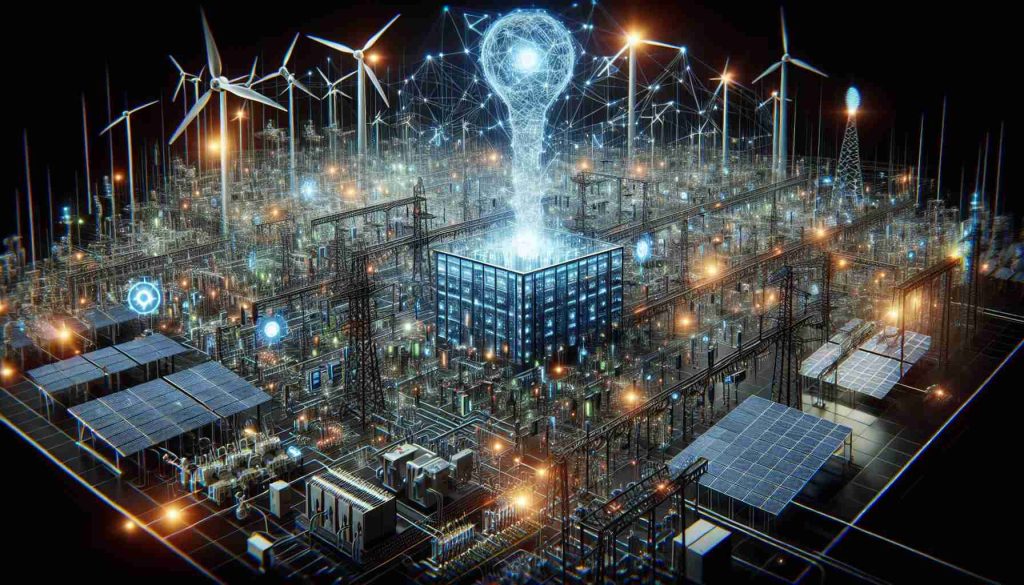
Recent insights suggest that the future of artificial intelligence (AI) may surpass human intelligence within the next year or two, with this landmark development hinging on sufficient electricity and hardware supplies. Elon Musk, the CEO of Tesla and SpaceX and a co-founder of OpenAI, anticipates that the next version of AI chatbot Grok by startup xAI is expected to complete its training by May, provided these essential resources keep pace with the technology’s demands.
Musk revealed, in what can be described as a forward-looking statement, his belief that General Artificial Intelligence (AGI) could outsmart the smartest human on Earth by next year or within two years, if challenges associated with advanced chip shortages could be overcome. This evolution, however, might soon be constrained more by the availability of electrical power than by hardware scarcities.
Last year saw Musk launch xAI as a competitor to OpenAI, advocating for the development of AI that benefits humanity rather than serving corporate profits—a stance that stems from a divergence in vision with OpenAI, which firmly rejects the accusations.
Musk emphasized that while the chip shortage has been a major bottleneck for AI development to date, it’s the energy supply that will take center stage in the next 12 to 24 months, becoming a critical factor in the trajectory of AI progression.
This statement intensifies the conversation around infrastructure and resources needed to sustain and propel the AI revolution, with power supply now a critical component for unlocking the potential of AI innovations in the near future.
The Implications of Artificial General Intelligence
The prospect of Artificial General Intelligence (AGI) surpassing human intelligence is a pivotal moment in technology. AGI represents a type of AI that can understand, learn, and apply knowledge in a way that is indistinguishable from a human being. If Elon Musk’s predictions hold true, AGI could revolutionize industries such as healthcare, finance, and transportation, and potentially solve complex problems in ways that are currently beyond human capability.
Industry and Market Forecasts
The AI industry has been on a rapid growth trajectory, with market research firms forecasting continued expansion. According to some predictions, the global AI market could reach into the hundreds of billions by the mid-2020s, showcasing the immense potential and financial interest in this technology. Companies specializing in hardware, such as Nvidia and AMD, provide the GPUs that are essential for machine learning tasks, and their market value reflects the importance of such components in advancing AI capabilities.
Challenges and Considerations
Musk’s concern about electricity supply underscores a larger issue: the sustainability of AI development. Training sophisticated AI models demands a substantial amount of computational power, which in turn requires electricity. As AI systems grow in complexity, ensuring a stable and environmentally sustainable energy supply will become critical.
Furthermore, the industry faces ethical and societal challenges. As AGI approaches the realm of possibility, questions about the consequences of creating machines that can outthink us arise. There are also concerns about job displacement, privacy, and the need for regulatory frameworks to govern the use of AGI.
Related Industries
Developments in the AI sector affect a wide range of ancillary industries. Semiconductor companies, for instance, stand to gain from the increased demand for high-performance chips. Data centers and cloud service providers, such as Amazon Web Services and Google Cloud, also play a critical role in supporting the infrastructure behind AI development.
Conclusion
Elon Musk’s insights into the future of AI and his focus on sufficient electricity and hardware supplies highlight the underlying structural needs of the AI industry. With the prospect of AGI on the horizon, both the opportunities and challenges presented by this technological leap are enormous. The market, while faced with current logistical challenges, seems poised for continued expansion as companies and governments alike invest in the future of AI. As the industry evolves, so too will the conversation around the ethical and practical implications of machines that can match or even surpass human intelligence.

Roman Perkowski is a distinguished name in the field of space exploration technology, specifically known for his work on propulsion systems for interplanetary travel. His innovative research and designs have been crucial in advancing the efficiency and reliability of spacecraft engines. Perkowski’s contributions are particularly significant in the development of sustainable and powerful propulsion methods, which are vital for long-duration space missions. His work not only pushes the boundaries of current space travel capabilities but also inspires future generations of scientists and engineers in the quest to explore the far reaches of our solar system and beyond.







